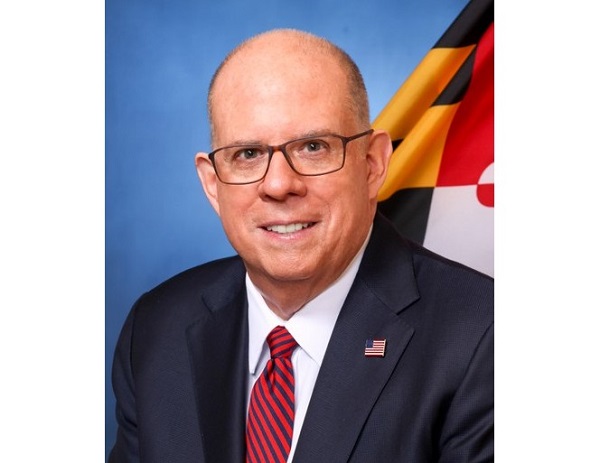ANNAPOLIS, MD—Governor Larry Hogan this week announced that he has submitted a $2.8 billion supplemental budget to the General Assembly that makes key investments in some of his administration’s core priorities, including support for police and public safety, an expanded cyber readiness and workforce initiative, and critical infrastructure and public health investments. This supplemental budget also funds top priorities for county leaders and local governments.
“In addition to delivering historic tax relief, we are making critical investments in Marylanders’ top priorities, from supporting our police and first responders and advancing priority infrastructure projects to expanding our cybersecurity capabilities,” said Governor Hogan. “We will also fulfill our mission to strengthen the state’s Rainy Day Fund to record levels and leave our state in a stronger fiscal position than we found it.”
CYBER READINESS AND WORKFORCE INITIATIVE
- An additional $100 million to modernize, strengthen, and expand our cyber infrastructure and threat response activities. This doubles the $100 million investment in the governor’s initial FY23 budget for cybersecurity and data initiatives. This second tranche of funding will expand and accelerate a number of critical information technology (IT) projects, including modernizing the state’s public health IT infrastructure.
- $1.2 million to launch the Maryland Cyber Range for Elevating Workforce and Education (MD-CREWE) to expand cybersecurity education and preparation for potential cyber threat scenarios. The cyber range—which will be operated by the new Maryland Institute for Innovative Computing (MIIC) at University of Maryland, Baltimore County—will launch a multi-state partnership for K-12 and higher education with the Virginia Cyber Range, as well as an initiative to provide training for manufacturing businesses.
- $550,000 to provide universal and equitable access to Advanced Placement (AP) Computer Science in every Maryland high school. This will help drive more college majors in computer science, help attract more students to STEM fields, and further strengthen Maryland’s standing as a national leader on computer science education.
POLICE, PUBLIC SAFETY, AND VICTIM SERVICES
- $20 million for four public safety projects in Baltimore City, including improvements to the Northeastern Police District Station and the Northwestern Police District Station, as well as new fire houses for Engine 14/Medic 21 and Engine 27/Truck 26.
- $10 million for Baltimore County to create a headquarters and training facilities for its police and fire departments.
$4.35 million to continue the Jessup Region Electrical Infrastructure Upgrade Project. - $3.75 million to the City of Frederick for the construction of a new headquarters for the police department.
$1.85 million to continue the construction of the Baltimore City Juvenile Justice Center—Education Expansion project. - $1.35 million for the Ocean Pines Volunteer Fire Department in Worcester County to renovate the South Street Station.
- $1 million for the YWCA of Annapolis & Anne Arundel County for the construction of a residential facility to provide shelter for youth affected by sexual exploitation.
$500,000 to the Conduit Road Fire Board and Glen Echo Fire Department for the construction of a new fire department. - $250,000 to provide an operating grant to the Signal 13 Foundation, which provides assistance for Baltimore City Police and first responders in need.
- $200,000 to provide support for survivors of sex trafficking and sexual exploitation through Harriett’s House.
PUBLIC HEALTH INVESTMENTS
- $24 million in funding to local governments to support substance use programs as the result of the state’s opioid settlements.
- 20 million to support steady-state COVID-19 operations.
- $5 million for the 9-8-8 Behavioral Health Crisis Hotline.
- $4.1 million for Sheppard Pratt Hospital to expand a patient care coordination center and referral system for behavioral health patient placement.
- $2.5 million for Sinai Hospital emergency room renovations.
- $3.9 million for statewide overdose prevention strategies, including funding to provide an opioid overdose renewal drug free of charge for certain individuals.
- $2 million for the Klein Family Harford Crisis Center, which provides round the clock care for mental health and addiction issues.
INFRASTRUCTURE AND ECONOMIC DEVELOPMENT PRIORITIES
- $947 million in state infrastructure funding and $165 million in funding from the federal Infrastructure Investment and Jobs Act for clean and drinking water projects.
- $20 million to fund affordable housing programs in Prince George’s County.
- $10 million for White Flint infrastructure and economic development in Montgomery County.
- $4 million for capital improvements to various public markets in Baltimore City.
- $8.8 million for the construction of resilience and revitalization projects at the Annapolis City Dock, bringing the total investment to $10 million.
- $2.5 million to the Maryland Deaf Community Center to build a new deaf and hard of hearing community in Frederick County.
- $750,000 to the Maryland State Fair and Agricultural Society for the construction of a new Agricultural Education Building.
K-12 EDUCATION AND NEED-BASED SCHOLARSHIPS
- $894 million in federal funds for K-12 education, and an additional $220 million to support school nutrition programs.
- $22 million for additional need-based scholarships for the University System of Maryland, Morgan State University, and St. Mary’s College of Maryland.
VETERANS AFFAIRS INITIATIVES
- $1.6 million for improvements and upgrades at the Charlotte Hall Veterans Home.
- $942,556 for additional cemetery maintenance and equipment.
This is the fourth supplemental budget that the governor has submitted to the General Assembly during the 2022 legislative session.
Do you value local journalism? Support NottinghamMD.com today.

